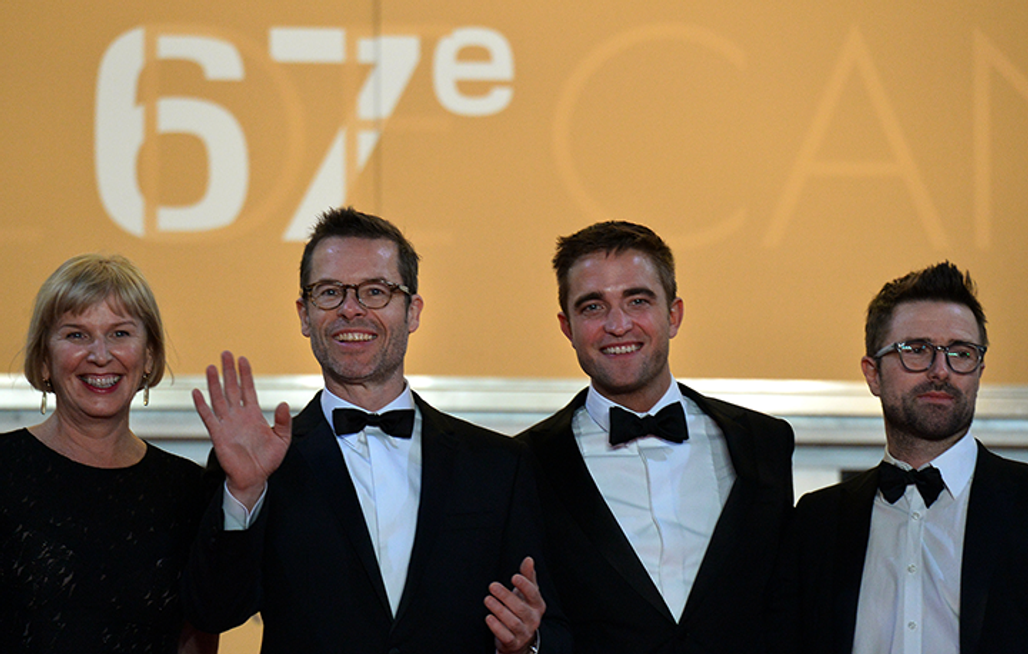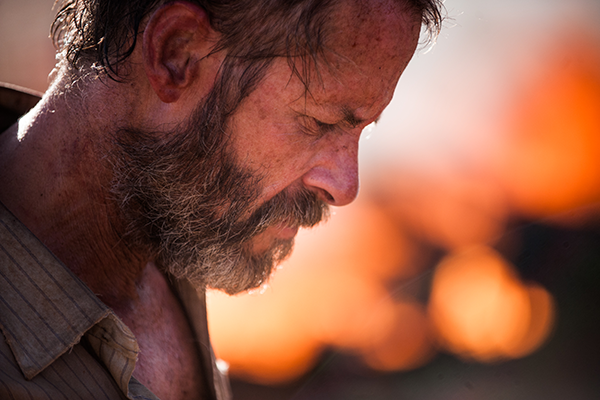
MIDNIGHT SCREENING – The Rover, modern western

A writer and director of short films and documentaries, David Michôd received international critical acclaim in 2010 with Animal Kingdom, his first fictional feature-length film. The film painted the portrait of a family of criminals living in a quiet area of Melbourne who were being pursued by the local police. In The Rover, the Australian filmmaker brings to the screen, in a world checked by the financial crisis, the story of two men whom fate will force to team up if they are to stay alive.
Could you explain how your film came about?
In about 2007, Joel Edgerton and I were sitting around in LA with time on our hands and we started dreaming up a movie about a man in the desert with a car – as simple as that. Originally we thought we would write it for his brother Nash to direct, but as soon as I went away to write the first draft I started writing it for myself.
The Rover is set in a near future wracked by economic and social crisis where humankind is striving to survive. Is this how you see what’s to become of us?
I always wanted ‘the collapse’ that has occurred in the movie to feel entirely plausible and foreseeable. I don’t necessarily see the world of The Rover as one we are in now (at least not the Western world – it does bear some resemblance to the chaos of resource-poor Third World states), but I do think that, in the face of today’s entirely prevalent gross self-interest, rampant greed and complete disregard for the things that sustain us, the world of the film is a logical extension of the world today.
How did you visually illustrate this particular statement, speaking of directing devices, shooting places, and light effects ?
I wanted everything to feel broken. The world of the movie isn’t one of complete anarchy or an absence of social infrastructure – it’s just an infrastructure that has been let fall into disrepair. So, in my conversations with production designer Jo Ford and DP Natasha Braier, we talked a lot about breaking things down, letting things happen at ground level. People sit on the ground a lot in the movie. Lighting sources are frequently to be found at ground level, that sort of thing.
Film still © RR
What did you focus on when writing your main characters?
I wanted the two main characters to play very simply. Eric (Guy Pearce) is a murderously embittered man who is old enough to remember a time when things were different. Rey (Robert Pattinson) is a simple American boy who has never known anything different than the world they live in now.
Can we compare your film to a modern western?
I think you can, simply because it is an intensely intimate story about two lonely characters set in a vast and dangerously inhospitable desert landscape. That mixture of elemental relationships painted on a terrifyingly empty canvas is a key feature of great Westerns and was certainly something I wanted to explore in The Rover.
Is there any particular memory from shooting that struck you?
The film was really tough to make and a real challnge for the whole team. We were a long way from civilsation. Phones didn’t work. It was screamingly hot and everyone was filthy all the time. All of which made the shared experience of it really special. The whole cast and crew gathered in these desert towns and bonds were formed. It is these small things that make a film rewarding.
The Rover is your second feature. Was it hard to rebound after Animal Kingdom’s success ?
Not really. It took a little time, but then I felt the need to get going again. I just needed to let the dust settle and then work out how, where and why to make the next film. Once everything had settled down, The Rover presented itself pretty quickly as the obvious choice.
Quotes gathered by Benoit Pavan
SCREENING
Sunday 18th May / Grand Théâtre Lumière / 10.30 p.m.
>>>Access the interactive calendar



